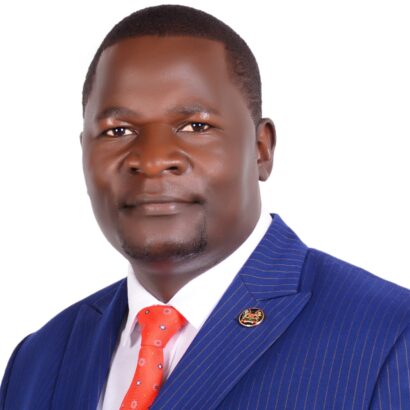By Hon. Kennedy Ondiek
The political landscape in Kenya has long been marred by ethnic divisions and tribal politics, a reality that continues to hinder the country’s progress toward a more unified and inclusive democracy.
At the center of this debate stands Deputy President Rigathi Gachagua, whose regional focus and inflammatory rhetoric have reignited discussions about tribalism in national leadership.
Some are now calling for his impeachment as the correct move to address not only his perceived tribal bias but also the reckless political chest-thumping that threatens Kenya’s national unity.
Impeachment, a constitutional mechanism, is not just about addressing gross misconduct or illegal activities; it can also serve as a vital tool to restore public confidence in the leadership of the country.
Gachagua’s approach, often emphasizing Mount Kenya’s interests at the expense of a more inclusive national narrative, has caused deep unease among Kenyans who view his behavior as divisive.
His speeches have frequently cast his leadership as beholden to a regional bloc, fostering a sense of exclusion in other parts of the country. At a time when Kenya needs leadership that unifies and builds bridges, Gachagua’s rhetoric does the opposite—it widens ethnic and political divides.
Tribalism remains one of the most significant challenges in Kenyan politics. The consistent focus on ethnic voting blocs and regional dominance undermines the democratic process and weakens the foundations of national cohesion.
Gachagua’s relentless focus on Mount Kenya’s interests may be seen by some as politically strategic, but it is also damaging to the country’s efforts to rise above tribal loyalties. Impeaching a national leader who perpetuates such divisiveness would send a powerful message that Kenya is ready to move past the politics of exclusion.
Moreover, Gachagua’s political chest-thumping—characterized by bold, often combative language—risks setting a dangerous precedent for how national leaders conduct themselves. Such rhetoric can inflame tensions, create unnecessary political drama, and derail important national conversations.
Reckless political posturing erodes the respect and decorum expected from leaders holding such high office. Impeachment, in this context, would be a step toward restoring decorum and accountability in political discourse.
Critics of the impeachment argument might warn that removing Gachagua could deepen political divisions and spark a backlash from his supporters in Mount Kenya. However, this concern overlooks the long-term damage that unchecked tribalism and reckless rhetoric can inflict on the country.
Kenya’s democracy needs leaders who put national interests above regional loyalty, and Gachagua’s approach runs counter to this vision. His impeachment would signal a decisive shift toward leadership that transcends tribal lines, setting an example that political office is about serving all Kenyans, not just one ethnic or regional group.
In conclusion, while impeachment is a drastic measure, it is the correct move in this instance to tame tribalism and reckless political chest-thumping. Kenya’s future depends on fostering national unity, and leaders who fail to uphold this ideal should be held accountable.
By pursuing Gachagua’s impeachment, Kenya would not only address his divisive politics but also take a bold step toward a more inclusive and responsible political culture.
The writer is the former Homabay County Legislator, a lawyer and UDA Coordinator, Nyanza Region
Want to send us a story? Contact Shahidi News Tel: +254115512797 (Mobile & WhatsApp)


